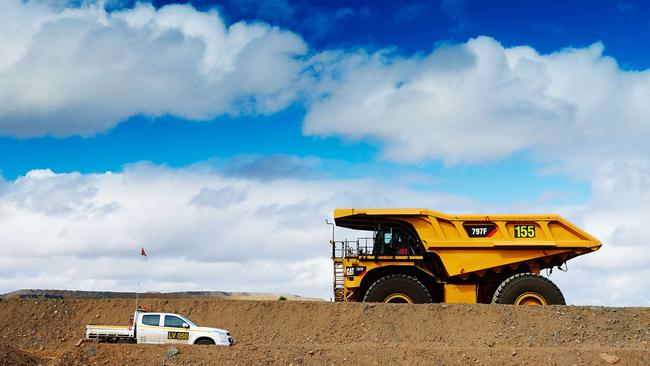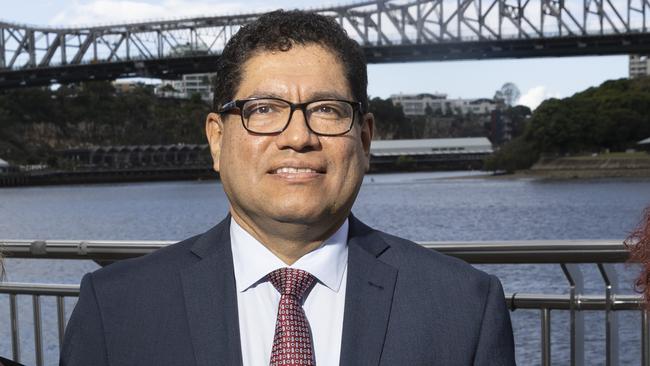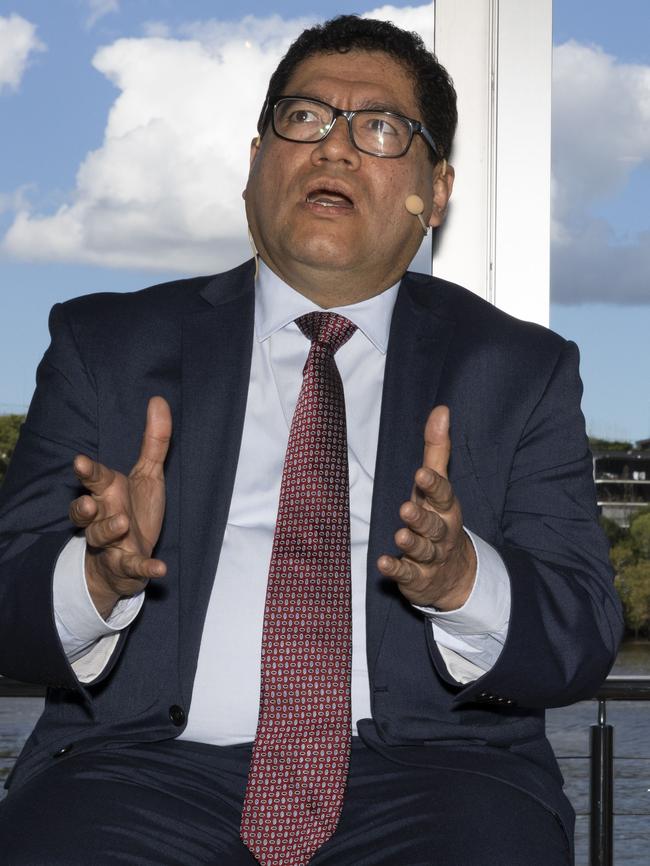Real risk to economy from China trade war: BHP Minerals Australia president Edgar Basto
One of BHP’s top executives says ongoing trade tensions with China are unsustainable and represent a risk to Australian economy.

One of BHP’s most senior executives has warned that ongoing trade tension with China is unsustainable and represents a “risk” to the Australian economy.
BHP Minerals Australia president Edgar Basto also dismissed the notion that all was well because Australia could find alternative markets for coal used in steelmaking, noting the large price loss — up to 50 per cent — when selling into other countries.
Mr Basto, who heads up the company’s mining business across the nation, including the vast Western Australian iron ore operations, made the comments at the The Australian’s Competitive Advantage Forum in Brisbane on Thursday.

He said while the long range outlook for the company was strong given robust steel demand that required quality coal and iron ore, the current frosty trade relations which escalated earlier this month with China suspending all economic dialogue were critical to address.
“The outlook looks good long term but unfortunately the here and now is a slightly different story,” he said.
“What we are seeing ... in terms of the impact to coal prices is significant and it does have an impact.
“Overall I think it’s a risk to the Australian economy and it’s an important risk and I think we should be candid in the way we evaluate the risk.”
Australian and Chinese relations have deteriorated in recent years from issues ranging from Australia banning Chinese telco Huawei from participating in the 5G rollout to China’s unhappiness with the way Australia called for an inquiry into the origins of the COVID-19 pandemic.
This move by China this month to suspend dialogue is likely fallout from the federal government’s announcement that it was tearing up two Belt and Road agreements between Beijing and Victoria.
But in recent years Australia has also seen punishing tariffs applied to its wine and barley exports while in October last year Australian coal remained stranded in China’s ports amid an unofficial ban.
“The price of our Australian coal — met coal — is basically half. So that’s a big challenge. “It’s not a situation that is sustainable,” Mr Basto said.
“I have heard comments like, you know, it is OK, the coal being produced in Australia and in Queensland is being placed in different markets so there’s no harm there.
“I don’t think that is right because the differential in price is almost half what we are getting for our coal than what others are getting in China.
“And you think about the long term, China’s market it a significant market player. You want to have access to that demand.
“So I think keeping that relationship is extremely important.”
BHP’s and Australia’s biggest export – iron ore – has so far avoided being caught up in the in any tensions. Strong demand from Chinese steelmakers saw price for iron ore surge this month to more than $US237 a tonne, helping to deliver a tax windfall for Canberra.
Mr Basto said the longer the stalemate continued, the more pressure it would place on miners to cut production no matter how competitive they tried to make themselves.
“I think it’s important to work in being competitive but you will start to see some production being taken out of the market because high cost producers will have to do that,” he said.
“That’s something that we have seen already.”

When asked if the federal government had erred in its messaging with Beijing, Mr Basto said it seemed both sides understood what was at stake but steps had to be taken to “rebuild trust”.
“I think both nations understand the fundamentals in terms of how important the relationship is,” he said.
“For me what is really important, and for the company, is to make sure that the trade relationship remains positive and that there are attempts to build or rebuild that trust.”
“If I think about how Australia benefitted in the last two decades because of the rapid growth from China it was a great opportunity. Many, many businesses benefitted,” he said.
With Australia’s international borders remaining closed BHP had also noticed a growing skills shortage particular in Western Australia, but also in South Australia and in Queensland.
He said one way the company was trying to deal with future workforce needs was by investing $800m to set up academies in Mackay and Perth for thousands of trainees over the next five years.
He also said while technology offered the greatest opportunity to the industry in terms of automation and efficiencies it was also making mining “less boring and more interesting” to a wider range of employees such as airline pilots that had recently pivoted to BHP operations.





